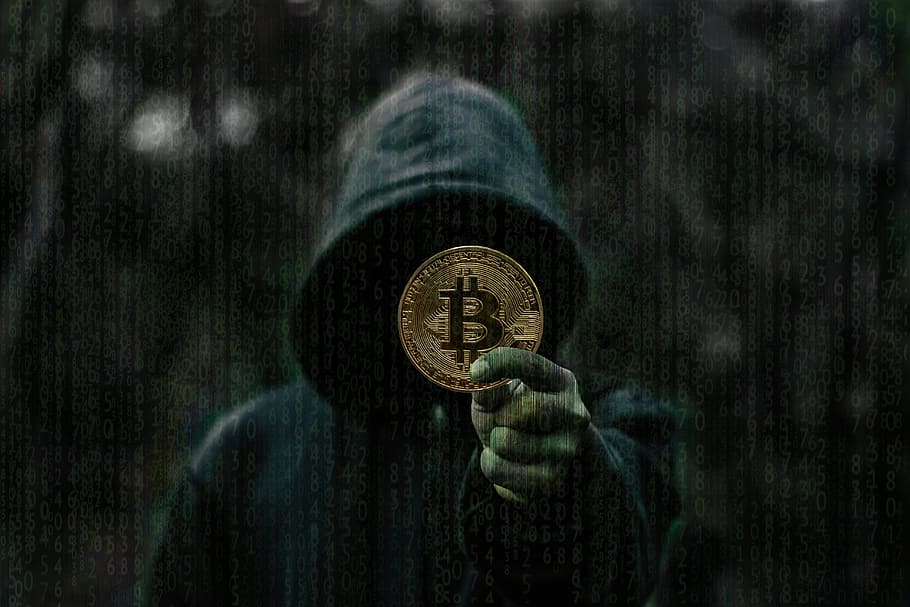Defining Dark Crypto

Dark cryptocurrencies are digital assets that operate outside the traditional financial system, offering anonymity and privacy to users. They often utilize decentralized technologies and privacy-enhancing features to obscure transaction details and the identities of participants.
Some key characteristics of dark cryptocurrencies include:
- Privacy-centric: Transactions are typically untraceable and anonymous, protecting user privacy.
- Decentralized: They operate on distributed networks, reducing the risk of censorship or control by a single entity.
- Limited regulation: Dark cryptocurrencies often exist in a legal gray area, with minimal government oversight.
Examples of Dark Cryptocurrencies
Notable examples of dark cryptocurrencies include:
- Monero (XMR): Known for its strong privacy features, including ring signatures and stealth addresses.
- Zcash (ZEC): Utilizes zero-knowledge proofs to provide optional privacy for transactions.
- Dash (DASH): Features a decentralized mixing service called PrivateSend to enhance transaction anonymity.
Privacy and Anonymity in Dark Crypto
Dark cryptocurrencies are designed to enhance privacy and anonymity compared to traditional cryptocurrencies. They incorporate features that make it difficult to trace transactions and link them to specific individuals or entities.
Further details about terra luna classic crypto is accessible to provide you additional insights.
One key privacy-enhancing feature of dark cryptocurrencies is the use of mixing services. Mixing services pool together multiple transactions from different users and then distribute the funds to their intended recipients in a way that makes it difficult to determine the origin or destination of each transaction.
Understand how the union of cold wallet can improve efficiency and productivity.
Use Cases for Dark Cryptocurrencies
Dark cryptocurrencies are used in various scenarios where privacy is paramount. Some common use cases include:
- Protecting sensitive information: Individuals and organizations may use dark cryptocurrencies to safeguard sensitive information, such as financial transactions or personal data, from being accessed by unauthorized parties.
- Facilitating anonymous transactions: Dark cryptocurrencies enable users to make transactions without revealing their identities. This anonymity can be beneficial for individuals who wish to protect their privacy or engage in activities that may be considered controversial or illegal.
- Bypassing censorship: In countries with restrictive internet laws or financial regulations, dark cryptocurrencies can provide a way for individuals to access and use digital assets without fear of censorship or reprisal.
Security Concerns with Dark Crypto

Dark cryptocurrencies pose unique security risks due to their anonymous and decentralized nature. Understanding these risks is crucial for users and regulators alike.
Challenges in Regulating and Tracking Transactions
The anonymity of dark cryptocurrencies makes it difficult for authorities to regulate and track transactions. This lack of oversight can facilitate illicit activities such as money laundering, tax evasion, and the sale of illegal goods.
Dark crypto markets operate on decentralized networks, making it challenging for law enforcement to identify and apprehend criminals. The absence of central authorities means that there is no single point of control or accountability.
When investigating detailed guidance, check out anchor crypto now.
Recommendations for Mitigating Security Risks
- Use reputable exchanges and wallets: Choose platforms that implement strong security measures and have a proven track record of reliability.
- Practice good password hygiene: Create strong passwords and use two-factor authentication (2FA) to protect your accounts.
- Be aware of phishing scams: Avoid clicking on suspicious links or providing sensitive information to unsolicited requests.
- Educate yourself: Stay informed about the latest security threats and best practices for protecting your cryptocurrency assets.
- Consider using a hardware wallet: These devices store your private keys offline, providing an extra layer of security against online attacks.
Legality and Regulatory Considerations
Dark cryptocurrencies occupy a complex and evolving legal landscape, varying significantly across different jurisdictions. Understanding their legal status and the regulatory challenges they pose is crucial for policymakers, law enforcement agencies, and individuals engaging in dark crypto markets.
Legal Status of Dark Cryptocurrencies
In many jurisdictions, the legal status of dark cryptocurrencies remains unclear. Some countries have explicitly prohibited their use, while others have adopted a more nuanced approach, recognizing them as legitimate financial instruments subject to certain regulations.
- Prohibition: Countries like China and Russia have implemented strict bans on dark cryptocurrencies, deeming them illegal and prohibiting their use or trading.
- Regulation: Jurisdictions like the United States and the United Kingdom have taken a more regulatory stance, classifying dark cryptocurrencies as digital assets or virtual currencies and subjecting them to anti-money laundering and know-your-customer (KYC) regulations.
- Legal Uncertainty: In many countries, the legal status of dark cryptocurrencies remains uncertain, with no clear regulatory framework in place. This uncertainty creates challenges for law enforcement and businesses operating in the dark crypto space.
Regulatory Challenges and Implications
The decentralized and anonymous nature of dark crypto markets poses significant regulatory challenges for authorities worldwide. Regulators struggle to monitor and control transactions, identify and prosecute criminals, and prevent illicit activities such as money laundering and terrorist financing.
- Anonymity and Privacy: Dark cryptocurrencies provide users with a high degree of anonymity and privacy, making it difficult for regulators to track and trace transactions.
- Decentralization: Unlike traditional financial systems, dark crypto markets are decentralized, lacking a central authority that can be held accountable for illicit activities.
- Cross-Border Transactions: The global nature of dark crypto markets makes it challenging for regulators to enforce laws and regulations across different jurisdictions.
Ongoing Efforts to Regulate and Control Dark Crypto Activities
Despite the challenges, governments and regulatory bodies worldwide are actively pursuing efforts to regulate and control dark crypto activities. These efforts include:
- International Cooperation: Governments are collaborating internationally to develop coordinated regulatory frameworks and share information to combat illicit activities involving dark cryptocurrencies.
- Law Enforcement Initiatives: Law enforcement agencies are investing in new technologies and strategies to investigate and prosecute crimes involving dark cryptocurrencies.
- Regulatory Guidelines: Regulators are issuing guidelines and implementing measures to mitigate risks associated with dark crypto markets, such as KYC and anti-money laundering regulations.
Use Cases for Dark Crypto
 Dark cryptocurrencies have legitimate use cases beyond illicit activities. They offer enhanced privacy and anonymity, which can be beneficial in various scenarios.
Dark cryptocurrencies have legitimate use cases beyond illicit activities. They offer enhanced privacy and anonymity, which can be beneficial in various scenarios. 